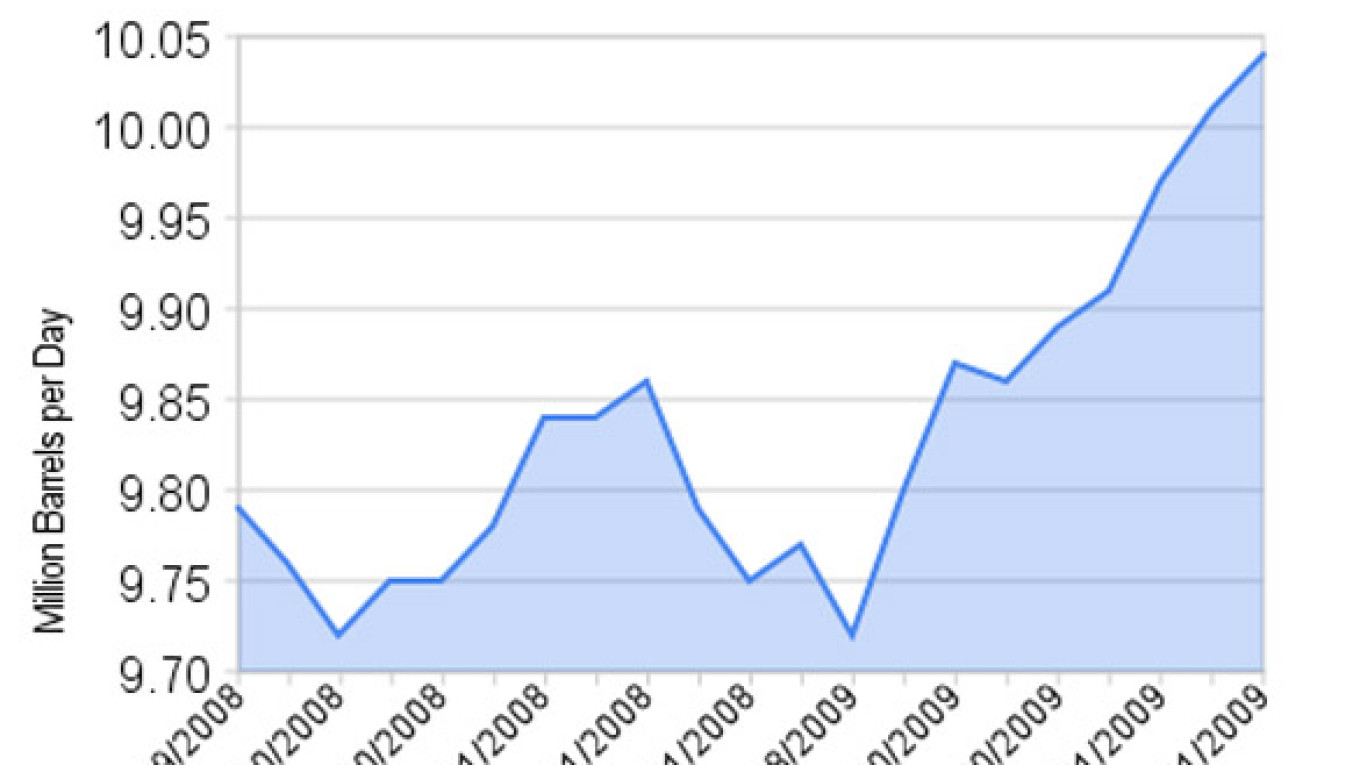Russia held its lead as the world’s top oil producer, posting a new high of more than 10 million barrels per day of crude extracted in October, Energy Ministry data released Monday showed.
October oil output inched up to 10.04 million barrels per day from an already record-high 10.01 million bpd in September, while October daily gas output rose by 15.8 percent to 1.76 bcm from 1.52 bcm in the previous month.
The continued rise in output of oil was accounted for by a new field on stream and a more benign tax regime introduced to tackle falling production.
Russia’s former monthly records for oil production were the 9.97 million bpd in August 2009 and 9.93 million bpd achieved in October 2007.
Saudi Arabia, historically the leading producer, has restricted its output in line with OPEC output targets and pumped about 8 million bpd in October.
Crude output fell last year for the first time in a decade, to 488.105 million tons. The Energy Ministry has forecast that production will rise to reach more than 490 million tons. Daily crude extraction rose 1.1 percent for the nine months to 410.3 million tons. Pipeline exports stood flat at 4.24 million bpd.
Rosneft led October’s record haul, producing 2.41 million bpd, about a half percent more than in September thanks mainly to the launch of the Vankor field in the Arctic. Its closest peer, privately held LUKoil, edged down its production by about 0.5 percent month on month to 1.83 million bpd.
October output from Gazprom was 1.45 billion cubic meters per day, 20.8 percent up from 1.20 bcm per day in September 2009 but 1.4 percent down from 1.5 bcm in October 2008.
In January to October 2009, gas output stood at 460.307 billion cubic meters, down 16.6 percent from the year earlier.
A Message from The Moscow Times:
Dear readers,
We are facing unprecedented challenges. Russia's Prosecutor General's Office has designated The Moscow Times as an "undesirable" organization, criminalizing our work and putting our staff at risk of prosecution. This follows our earlier unjust labeling as a "foreign agent."
These actions are direct attempts to silence independent journalism in Russia. The authorities claim our work "discredits the decisions of the Russian leadership." We see things differently: we strive to provide accurate, unbiased reporting on Russia.
We, the journalists of The Moscow Times, refuse to be silenced. But to continue our work, we need your help.
Your support, no matter how small, makes a world of difference. If you can, please support us monthly starting from just $2. It's quick to set up, and every contribution makes a significant impact.
By supporting The Moscow Times, you're defending open, independent journalism in the face of repression. Thank you for standing with us.
Remind me later.


